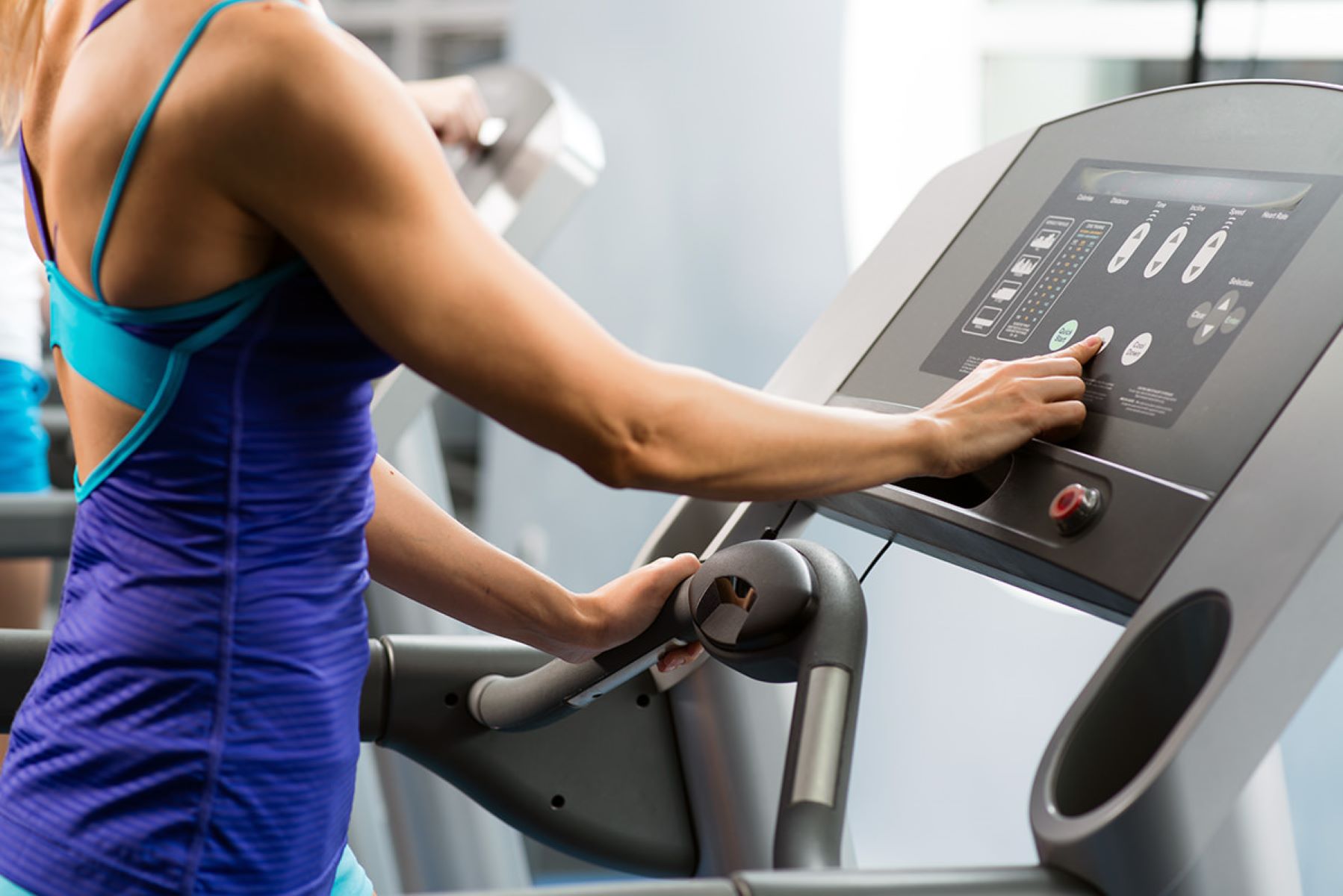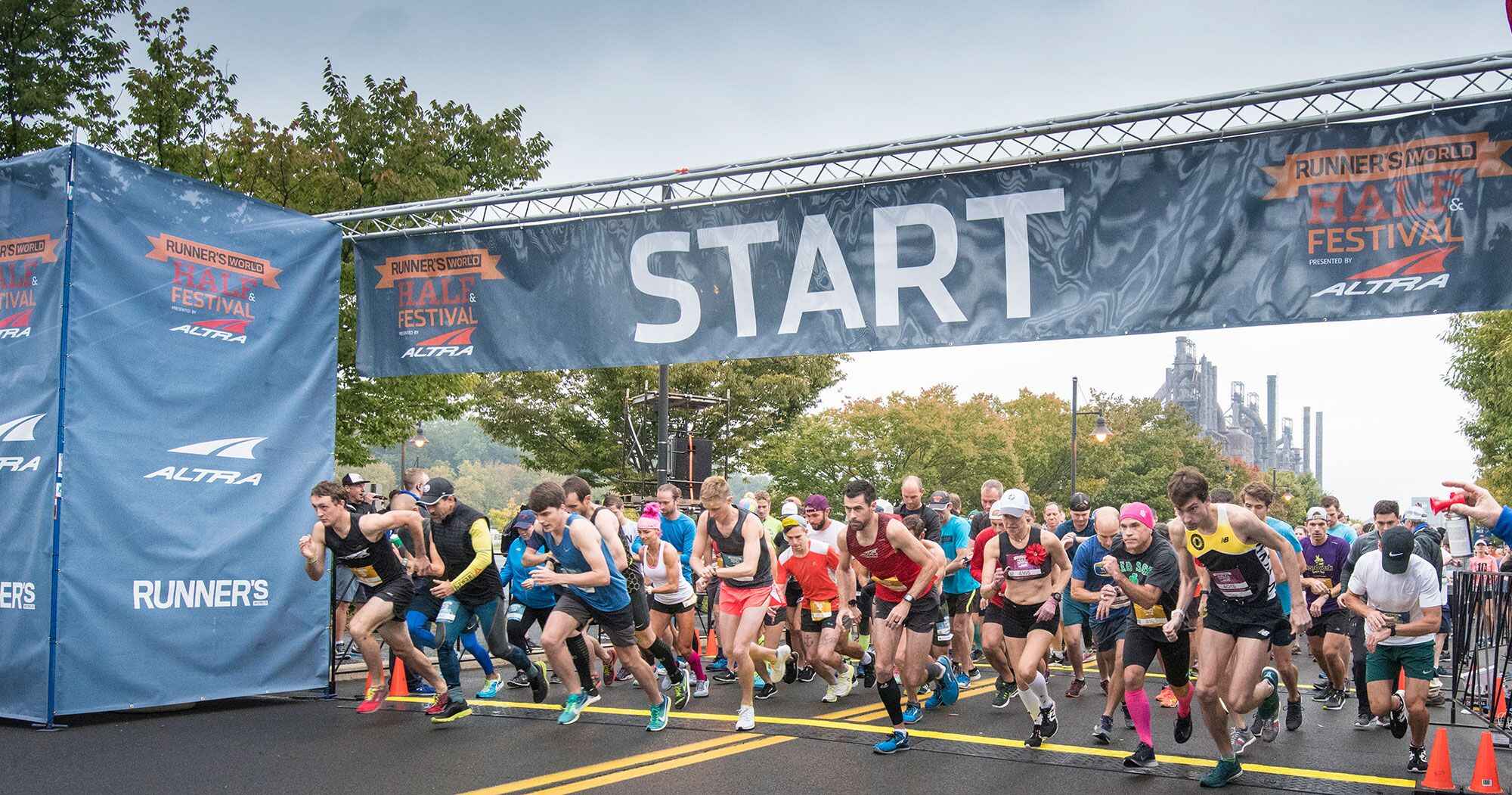Home>Misc>Featured>How Many Calories Does Running A Marathon Burn


Featured
How Many Calories Does Running A Marathon Burn
Modified: January 22, 2024
Featured: Find out the calorie-burning potential of running a marathon and discover how this vigorous activity can help you achieve your fitness goals.
Introduction
Running a marathon is no small feat. It requires a tremendous amount of physical endurance and mental strength. Whether you’re an experienced marathon runner or just starting to train for your first one, you may be wondering how many calories you burn during this challenging endeavor.
The number of calories burned during a marathon depends on various factors, including your body weight, pace, and exertion level. Understanding the science behind calories burned in marathon running can help you optimize your training and make informed decisions about nutrition and hydration.
In this article, we will delve into the science of calorie burn during a marathon and explore the factors that affect it. We will also discuss how you can calculate the calories burned during a marathon and provide tips for maximizing your calorie burn during training. Additionally, we will explore the importance of proper nutrition and hydration in optimizing calorie burn and how you can monitor your calorie burn during a marathon.
Running a marathon is not only a physical challenge but also a mental one. It requires months of training and dedication, pushing your body to its limits and overcoming various obstacles along the way. As you push through the miles, your body becomes a calorie-burning machine, expending energy to fuel your every step.
Calories are a measure of the energy content in food, and your body needs a certain amount of calories to perform everyday functions. During marathon running, however, your body requires significantly more energy to power your muscles and sustain your endurance. This increased energy expenditure leads to a higher calorie burn compared to other forms of physical activity.
The Science Behind Calories Burned
Understanding the science behind calories burned during marathon running can shed light on the energy demands of this intensive activity. When you run, your muscles contract and utilize stored glycogen as the primary source of fuel. As glycogen stores deplete, your body switches to burning stored fat for energy.
The number of calories burned during a marathon is influenced by several physiological factors. One crucial factor is your body weight. The heavier you are, the more calories you’ll burn as you move your body weight over the distance. For example, a 150-pound runner will burn more calories than a 120-pound runner covering the same distance at the same pace.
Another factor that affects calorie burn is your pace. The faster you run, the more calories you will burn. This is because running at a higher intensity requires greater muscular effort and aerobic capacity. However, it’s worth noting that running at an extremely high intensity may also burn more carbohydrates rather than fat.
In addition to body weight and pace, the intensity and duration of your marathon also impact calorie burn. Running a hilly course or encountering strong headwinds requires greater effort, resulting in increased calorie expenditure. The longer the duration of your marathon, the more calories you’ll burn, as your body constantly works to maintain your running momentum.
Your metabolic rate also plays a role in calorie burn during a marathon. Metabolic rate refers to the rate at which your body burns calories while at rest. Individuals with a higher resting metabolic rate tend to burn more calories overall, including during exercise. Factors such as genetics, age, and body composition can influence your metabolic rate.
It’s important to note that these factors are not static and can vary from person to person. Therefore, it’s challenging to provide an exact number for the calories burned during a marathon. However, various formulas and calculations can provide you with a rough estimate.
Calculating the exact number of calories burned during a marathon can be complex. Numerous online calculators and wearable devices use formulas that take into account your weight, pace, and distance to estimate calorie burn. While these calculations can serve as a useful guideline, it’s important to remember that they are only estimates, and individual variations exist.
Understanding the science behind calorie burn during a marathon can help you optimize your training and customized nutrition and hydration strategies. By knowing approximately how many calories you burn during a marathon, you can ensure you provide your body with adequate fuel and hydration to perform at its best.
Factors Affecting Calorie Burn in Marathon Running
Several factors influence the number of calories burned during marathon running. Understanding these factors can help you optimize your training and nutrition strategies to maximize calorie burn:
- Body Weight: As mentioned earlier, your body weight plays a significant role in calorie burn during a marathon. The heavier you are, the more calories you’ll burn. This is because your body has to work harder to move a larger mass over the distance. However, it’s important to note that being underweight can also affect performance and overall health, so maintaining a healthy weight is crucial.
- Pace and Intensity: The speed at which you run and the intensity of your effort directly impact calorie burn. Running at a higher intensity, such as sprinting or running uphill, requires more energy and thus burns more calories. However, pushing yourself too hard can lead to fatigue and potential injury, so it’s essential to find a pace and intensity that you can sustain throughout the marathon.
- Terrain and Elevation: The type of terrain you run on and the elevation changes during a marathon affect calorie expenditure. Running on hilly or uneven surfaces requires more effort and engages different muscle groups, resulting in increased calorie burn. Additionally, running at higher altitudes can also lead to increased calorie burn due to the effects of thinner air on oxygen intake and muscle efficiency.
- Training and Conditioning: The level of training and conditioning your body has undergone leading up to the marathon can impact calorie burn. Well-trained runners tend to have better running economy, which means they require less energy to maintain a certain pace. Regular training helps improve cardiovascular fitness, muscle endurance, and overall efficiency, resulting in more effective calorie burn during the marathon.
- Weather Conditions: Environmental factors, such as temperature and humidity, can also affect calorie burn during marathon running. Running in hot and humid conditions requires more effort to regulate body temperature, leading to increased energy expenditure. Similarly, running in cold weather may increase calorie burn as your body works to stay warm. It is crucial to consider these factors and adjust your hydration and fueling strategies accordingly.
It’s important to recognize that these factors interact with each other and can vary from person to person. They can also change throughout the course of a marathon, so paying attention to your body’s signals and adapting your strategy as needed is essential.
By understanding the factors that affect calorie burn, you can leverage this knowledge to optimize your training, plan your nutrition, and make adjustments during the marathon to ensure you’re providing your body with the fuel it needs to perform at its best.
Calculating Calories Burned in a Marathon
Calculating the exact number of calories burned during a marathon can be challenging due to individual variations and the multitude of factors involved. However, there are several methods you can use to estimate your calorie expenditure during this endurance event:
- Online Calculators: Many online calculators are available that use standardized formulas to estimate calorie burn based on factors such as body weight, distance, and pace. These calculators provide a rough estimate of calorie expenditure and can serve as a helpful starting point.
- Wearable Devices: Fitness trackers and smartwatches with built-in heart rate monitors can provide more accurate estimates of calorie burn during a marathon. These devices use algorithms that consider heart rate, distance, and other metrics to calculate energy expenditure. While they can be more accurate, it’s important to note that they are still estimates and may not be 100% accurate for everyone.
- MET Values: MET (Metabolic Equivalent of Task) values can be used to estimate calorie burn during various activities, including running. MET values represent the amount of energy expended during a specific activity compared to resting. By multiplying your body weight in kilograms by the MET value for running, you can estimate the calories burned per minute and then multiply that by the duration of your marathon.
- Heart Rate Monitoring: Monitoring your heart rate during the marathon can provide valuable insights into your calorie burn. By using heart rate zones and knowing your maximum heart rate, you can estimate the intensity of your effort and approximate calorie expenditure.
While these methods can provide estimates, it’s important to remember that they may not be 100% accurate for everyone. Individual variations in metabolism, efficiency, and other factors can impact calorie burn. It’s also worth noting that calorie burn calculations do not account for factors such as terrain, weather conditions, and variability in effort throughout the marathon.
Using these estimation methods can help guide your training and nutrition strategies. By having a rough idea of your calorie burn, you can adjust your fueling plan during the marathon to ensure you’re providing your body with the necessary energy. It’s recommended to consult with a sports nutritionist or dietitian who can provide personalized guidance based on your specific needs and goals.
Remember, the primary goal of marathon running is not solely about calorie burn. It’s essential to focus on overall performance, enjoyment, and the personal challenge of completing the distance. Use these estimations as a guide, but listen to your body and adjust your strategy based on its unique needs throughout the marathon experience.
Tips for Maximizing Calorie Burn in Marathon Training
When it comes to maximizing calorie burn during marathon training, there are several strategies you can implement to make the most of your workouts. By focusing on these tips, you can optimize your training and increase your calorie expenditure:
- Incorporate High-Intensity Interval Training (HIIT): Including HIIT workouts in your marathon training can help increase calorie burn. These sessions involve alternating periods of high-intensity effort with recovery periods. HIIT not only boosts your cardiovascular fitness but also elevates your metabolism, resulting in increased calorie burn both during and after your workouts.
- Run Longer Distances: Gradually increasing the distance of your runs can help to enhance calorie burn. Longer runs require more energy and engage more muscles, resulting in higher calorie expenditure. However, it’s crucial to listen to your body, gradually build up your mileage, and avoid overtraining. Balance longer distance runs with rest and recovery days for optimal performance.
- Incorporate Strength Training: Adding strength-training exercises to your marathon training regime can provide numerous benefits, including increased muscle mass and improved running economy. Strength training helps build lean muscle, which can elevate your basal metabolic rate and increase calorie burn even at rest. Include exercises such as squats, lunges, and core work to target major muscle groups.
- Focus on Speed and Hills: Incorporating speed workouts and hill training into your marathon training can boost calorie burn. Running at faster speeds and tackling inclines require more effort and engage additional muscle fibers, resulting in increased energy expenditure. These types of workouts also improve your running efficiency and overall endurance.
- Alternate Workout Modalities: Cross-training with activities like cycling, swimming, or rowing can be beneficial for calorie burn and overall fitness. These low-impact exercises can help prevent overuse injuries while still providing a cardiovascular challenge. Exploring different workout modalities can also keep your training varied and enjoyable.
- Stay Consistent: Consistency is key when it comes to maximizing calorie burn. By sticking to a regular training schedule, your body adapts and becomes more efficient at burning calories. Aim for a balance between training intensity and recovery to avoid burnout and injury.
While focusing on maximizing calorie burn is important, it’s equally essential to prioritize overall health and well-being. It’s crucial to fuel your body properly with a balanced diet that includes a variety of nutrient-dense foods. Getting adequate rest, staying hydrated, and listening to your body are also vital components of a successful marathon training program.
Remember, marathon training is a long-distance journey that requires commitment and patience. Be consistent, give yourself ample time to adapt and improve, and enjoy the process of pushing your limits and achieving your goals.
Importance of Proper Nutrition and Hydration in Calorie Burn
Proper nutrition and hydration are essential factors in maximizing calorie burn during marathon running. Your body requires adequate fuel and hydration to perform at its best and sustain the energy demands of this endurance event. Here’s why nutrition and hydration play a crucial role in calorie burn:
- Fuel for Energy: Food is the primary source of energy for your body, and consuming the right types and amounts of fuel is crucial for optimal performance. Carbohydrates are the body’s preferred fuel source during exercise, and they provide the necessary energy to power your muscles during a marathon. Ensuring you have sufficient carbohydrate stores through a well-balanced diet can support calorie burn and prevent energy depletion.
- Muscle Repair and Recovery: Protein plays a vital role in muscle repair and recovery. During marathon running, the repetitive muscle contractions can cause small micro-tears in your muscle fibers. Consuming enough protein helps repair and rebuild these muscle tissues, promoting recovery and the efficient burning of calories. Include lean sources of protein, such as chicken, fish, tofu, and legumes, in your diet to support muscle recovery.
- Hydration for Performance: Staying properly hydrated is crucial for maintaining performance and preventing dehydration during a marathon. Dehydration can adversely affect your body’s ability to burn calories efficiently and can lead to decreased energy levels and compromised muscle function. Aim to drink sufficient fluids before, during, and after your training runs and the marathon itself. Electrolyte-rich drinks can help replenish electrolytes lost through sweat and support optimal hydration.
- Optimizing Metabolism: Eating a balanced diet with adequate calories supports a healthy metabolism. Restricting calories excessively or following extreme diets can negatively impact calorie burn and overall performance. Your body requires a certain amount of energy to function properly, and providing it with the correct balance of macronutrients and calories supports efficient metabolism and calorie burn during marathon training.
- Preventing Muscle Breakdown: Consuming carbohydrates and protein after your training sessions and the marathon is essential for preventing muscle breakdown. When your glycogen stores are depleted, your body can break down muscle protein for fuel, which can hinder calorie burn and recovery. Consuming a post-workout or post-race meal/snack with a combination of carbohydrates and protein helps replenish glycogen stores and minimizes muscle breakdown.
It’s important to work with a sports nutritionist or dietitian who can provide personalized guidance on your specific nutritional needs for marathon training. They can help create a customized meal plan that supports optimal calorie burn, energy levels, and overall performance.
Lastly, pay attention to your body’s signals during training and the marathon. Listen to your hunger and fullness cues, and adjust your fueling strategy accordingly. Experiment with different types of fuel, such as energy gels, sports drinks, and whole foods, during your long training runs to determine what works best for you.
By prioritizing proper nutrition and hydration, you can provide your body with the necessary fuel and support its calorie-burning capabilities, ultimately enhancing your performance and achieving your marathon goals.
Monitoring Calorie Burn during a Marathon
While it’s challenging to accurately measure the exact number of calories burned during a marathon, there are several methods you can use to monitor and estimate your calorie expenditure:
- Heart Rate Monitors: Utilizing a heart rate monitor during a marathon can provide valuable information on your effort and calorie burn. By knowing your maximum heart rate and monitoring your heart rate zones, you can get a rough estimate of the intensity of your effort. Heart rate monitors, combined with factors such as distance and time, can give you a general idea of calorie burn.
- GPS Running Watches: GPS running watches are popular among marathon runners as they provide data on distance, pace, and time. Some advanced models also estimate calorie burn based on these metrics along with factors like heart rate and body weight. While these estimates are not always 100% accurate, they serve as a useful tool for tracking your energy expenditure.
- Running Apps: Numerous smartphone apps designed specifically for runners can assist in monitoring calorie burn during a marathon. These apps often use GPS tracking, along with user input data such as weight, to estimate calorie burn. They provide real-time feedback on distance, pace, and calories burned, making it easier to track your progress during training runs and the marathon itself.
- Post-Marathon Analysis: After completing a marathon, you can evaluate your calorie burn by analyzing your overall performance and recovery. Keep track of the food you consumed before, during, and after the race and assess how well you maintained your energy levels throughout. Reflecting on your energy levels and performance can provide insights into your calorie expenditure and help you make adjustments for future races.
- Consulting with Experts: If you’re looking for a more accurate assessment of your calorie burn during a marathon, consider consulting with sports scientists or exercise physiologists. They can perform specialized tests, such as indirect calorimetry, which measures your oxygen consumption to estimate calorie burn. These tests provide more precise data but may not be necessary for every runner.
It’s important to remember that calorie burn is just one aspect of marathon running, and focusing solely on this metric may take away from the overall experience. It’s essential to balance monitoring calorie burn with other factors such as your performance, enjoyment, and personal goals.
Additionally, it’s worth noting that everyone’s body is unique, and individual variations in metabolism can affect calorie burn. So, while monitoring your calorie burn can provide valuable insights, it’s important to listen to your body and adjust your fueling and hydration strategies based on its specific needs.
Ultimately, the most important aspect of a marathon is the journey itself. Use calorie monitoring as a tool to guide your training and nutrition, but also embrace the experience, celebrate your accomplishments, and enjoy every step along the way.
Conclusion
Running a marathon is a remarkable feat that requires months of training, dedication, and mental strength. Understanding the science behind calories burned during a marathon and the factors that influence calorie expenditure can help you optimize your training and nutrition strategies. While it’s challenging to measure the exact number of calories burned during a marathon, various methods such as online calculators, wearable devices, and heart rate monitoring can provide estimates.
To maximize calorie burn during marathon training, incorporate high-intensity interval training, run longer distances, include strength training, focus on speed and hills, alternate workout modalities, and maintain consistency. Proper nutrition and hydration also play a crucial role in calorie burn by providing adequate fuel, supporting muscle repair and recovery, optimizing metabolism, and preventing muscle breakdown. Working with a sports nutritionist or dietitian can help create a personalized meal plan to meet your specific needs.
While it’s important to monitor calorie burn during a marathon using tools like heart rate monitors, GPS running watches, and running apps, it’s equally vital to remember that calorie burn is just one aspect of the marathon experience. Embrace the journey, focus on overall performance and enjoyment, and listen to your body’s signals for optimal fueling and hydration.
As you tackle the distance, remember that running a marathon is an incredible achievement and a testament to your hard work and determination. The calories burned during the race are merely a reflection of the effort you’ve put in. So, celebrate your accomplishments, cherish the experience, and take pride in the energy you’ve expended to conquer the marathon challenge.





